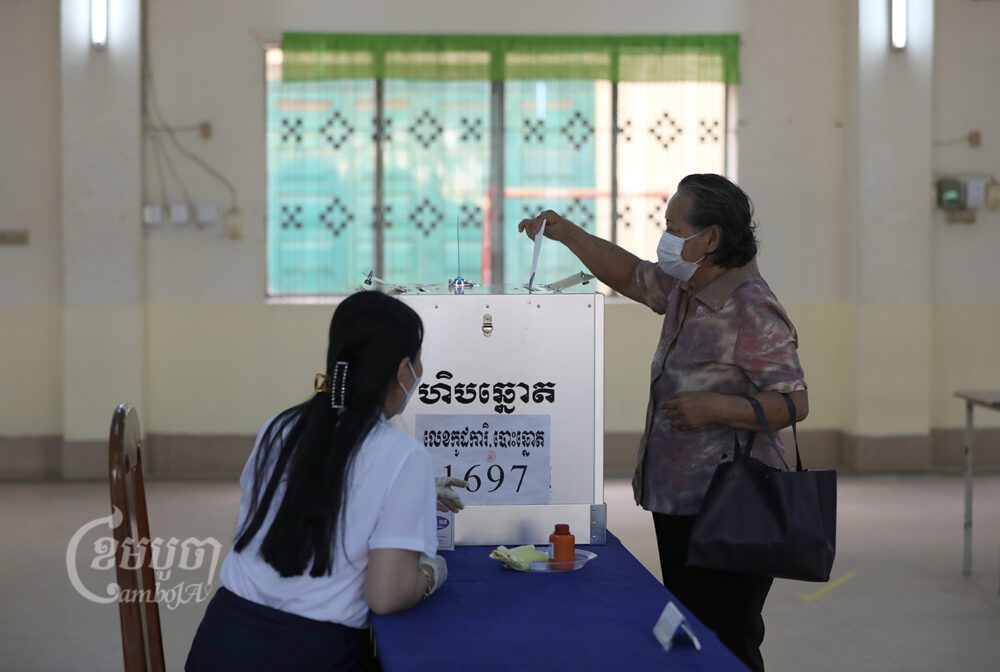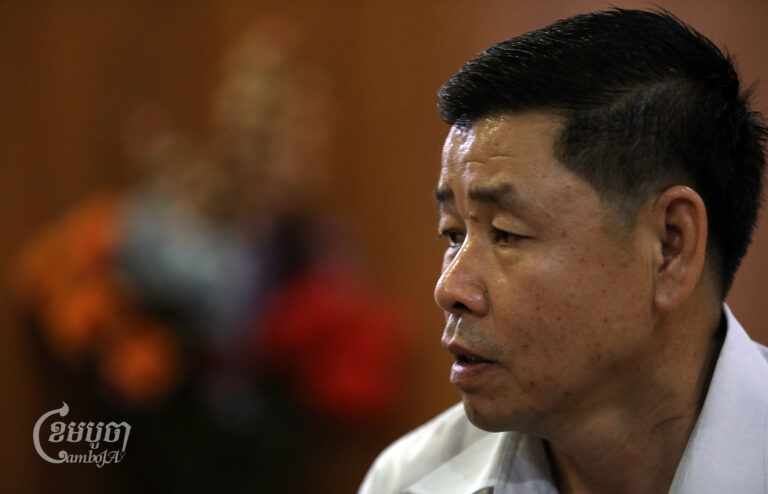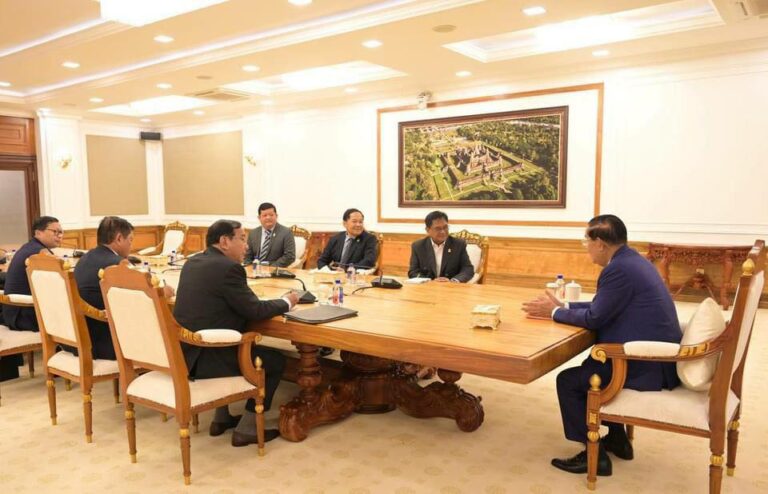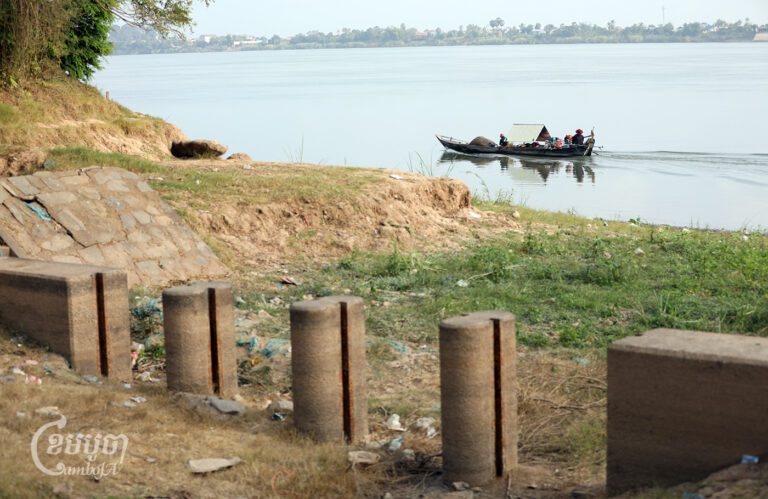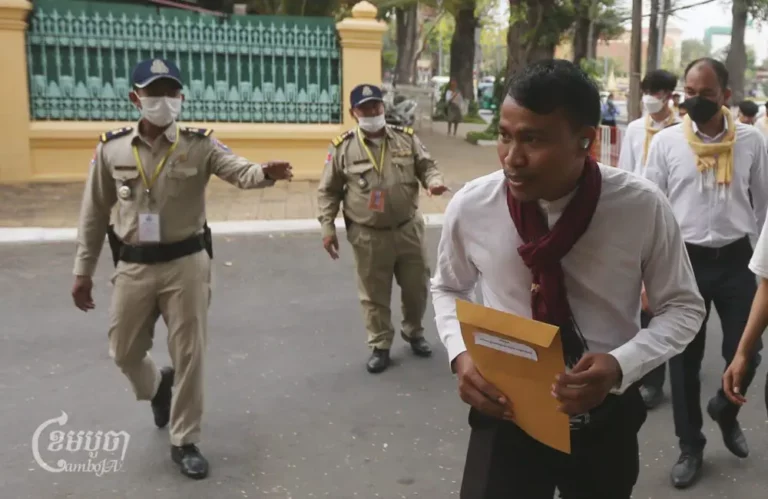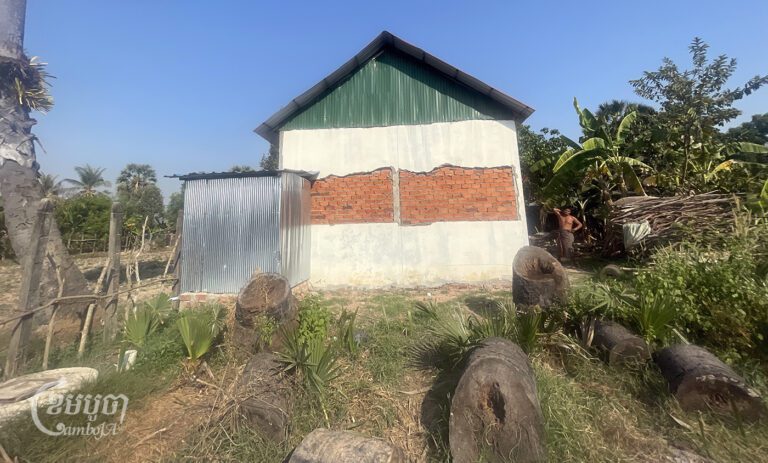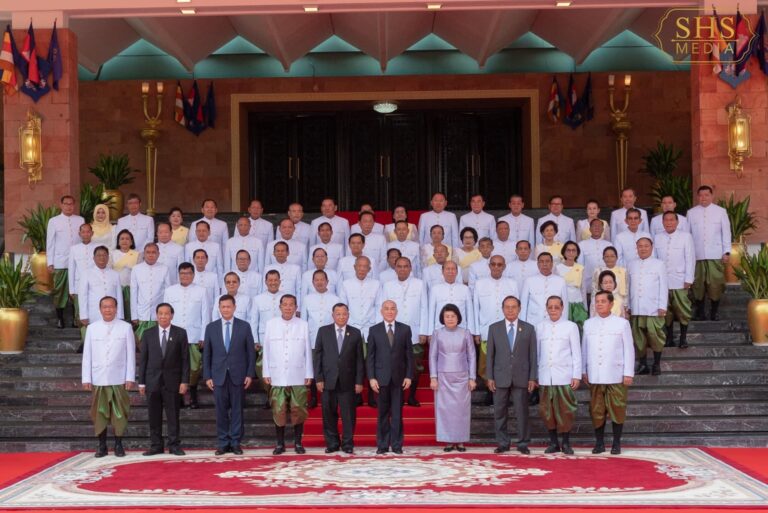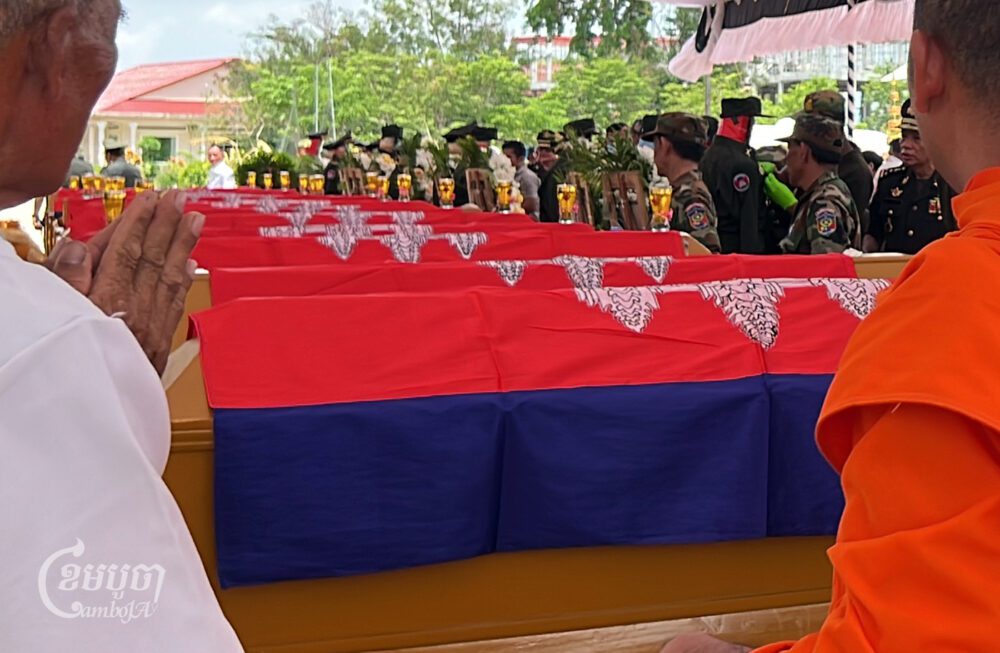Prime Minister Hun Sen on Wednesday said proposed amendments to election laws would require candidates for a national election to have voted in the two prior elections to register as a candidate.
The prime minister was speaking to around 20,000 garment workers in Phnom Penh’s Pur Senchey district when he expanded on his proposal to restrict people from standing for elected office if they have not voted. The new amendments would require prospective candidates to vote in at least two elections to qualify to compete.
To illustrate his point, Hun Sen said a person would have to vote in the upcoming July national election and in the 2027 commune election to be eligible for the 2028 national election.
He added that Article 142 of the Law on the Election of National Assembly Members, which currently details fines for affecting the election process, would also be amended to include the term “incitement” as an act of impeding the election. Apart from paying a fine for this infraction, there would be a five-year ban from running from office too, he said.
He asked Sar Kheng and Keut Rith, both cabinet ministers drafting these hasty amendments, to make similar changes to any other election-related laws.
“These laws will restrict the activities of anyone [who tries to] destroy the rights of other citizens [who want to vote],” Hun Sen said.
Hun Sen first mentioned these new amendments on Tuesday, likely in connection to a growing sentiment among voters who have, in Facebook posts, indicated they will not vote or spoil their ballots in July. The prime minister said he wants these amendments to be pushed through before the national election campaign period begins on July 1.
Justice Ministry spokesperson Chin Malin declined to elaborate on the details of the draft amendments nor did he share a copy of the proposed text. “Please wait until it is approved,” he said.
However, Malin told CamboJA on Tuesday that the amendments were not aimed at restricting specific people from joining politics or to block politicians. They would only uphold the national interest and require candidates to be “good citizens” and “carry out their duty.”
Sam Kuntheamy, executive director at election watchdog NICFEC, said the new amendments were creating an “obligation” for prospective candidates and would impact their rights, especially when the Constitution gives them the right to contest.
“It will restrict citizen’s rights and political rights,” Kuntheamy said.
Article 34 of the Cambodian Constitution endows people the right to vote and stand for elections, but also states that “provisions restricting the right to vote and the right to stand as candidates of the election shall be determined by law.”
Recently, Cambodian courts have used these provisions in the Cambodian Criminal Code to limit the rights of former Cambodia National Rescue Party members, who have been convicted on a slew of charges.
Former CNRP president Kem Sokha was convicted in March of treason, with the Phnom Penh Municipal Court sentencing him to 27 years in prison and placing a lifetime ban on his right to participate in politics.
Calls for a boycott of the July election came after the Candlelight Party was disqualified in May by the National Election Committee from registering candidates over an alleged incorrect document in their application.
Candlelight spokesperson Kimsour Phearith said that the proposed amendments will not benefit the public and are only intended to target a group of opposition members and supporters.
“In these circumstances, the [Cambodian People’s Party] can do it because they have the power and enough voices in the [National Assembly],” he said.
The CPP controls all 125 seats in the National Assembly, after it swept the 2018 national election, months after the CNRP was dissolved by the Supreme Court. With the absence of Candlelight on the ballot, the CPP is projected to hold on to its absolute control of parliament.


